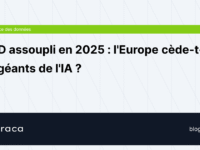Publié : 25 November 2025
Actualisé : 8 hours ago
Fiabilité : ✓ Sources vérifiées
Je mets à jour cet article dès que de nouvelles informations sont disponibles.
📋 Table of Contents
🎮 The Six-Fingered Scandal: When Call of Duty Goes Off Script
Just imagine: you’re eagerly awaiting your favorite game, the blockbuster Call of Duty: Black Ops 7, with the excitement of a child on Christmas morning. The game launches, and then… disaster strikes. Not because of a major bug or a shaky storyline, but due to an almost absurd visual detail: a six-fingered hand on a “calling card”! A small glitch that was enough to turn a game launch into an explosive national debate about artificial intelligence.
Mid-November, the gaming community wasn’t discussing the new multiplayer meta or the campaign’s plot twists. No, it was this grotesque detail, a mere pixel too many, that ignited the controversy. An incident that far exceeded video game forums to land directly on the desks of American lawmakers. And what if this is just the beginning?
🎨 “AI Slop”: The Digital Mess That Didn’t Fly
Hours after the kickoff, strange screenshots flooded the internet. “Calling cards” displaying a “cartoon” style à la Studio Ghibli, an odd choice for a military game, with impossible perspectives and merged objects. And of course, the infamous six-fingered hand on the “Reeled In” card became the symbol of this blunder.
The community’s verdict was unanimous and unequivocal: it’s AI. But not just any AI. The term “AI slop” – literally “AI gunk” or “mess” – was chanted, a stinging phrase for these generic, low-quality visuals. For players, it was a blatant lack of creative effort, an insult to the “human touch” expected from a full-priced AAA title. The consequence? Black Ops 7 became one of the lowest-rated installments in the entire franchise. A real blow for Activision.
The key takeaway: The latest Call of Duty: Black Ops 7 incorporated low-quality AI-generated images, including a six-fingered hand, sparking immense anger among players and triggering a political debate on the use of AI in the creative industry.
🛡️ Activision’s (Rather Clumsy) Defense
Facing the storm, Activision had to come clean. Yes, they use AI. A mention was even added, almost discreetly, on Steam: “Our team uses generative AI tools for the development of certain game elements.” Their official defense? AI is merely a “tool” to “support” creative teams, with the process remaining “driven by the talented individuals” in the studios.
A discourse intended to be reassuring, but which rang hollow for many. The publisher refused to specify which assets were concerned and seemed to contradict its own past statements where it claimed everything was “100% reworked by humans.” For many observers, this is proof that Activision chose to normalize AI, even if it meant sacrificing artistic quality. The pressure was so intense that Steam even offered refunds for “non-explicit use of artificial intelligence in the development of game elements.”
🏛️ When Politics Joins the Game
This is where the story takes an unexpected turn. This pixelated scandal wasn’t confined to video game forums. It reached the US Congress. Ro Khanna, a Democratic Congressman from California and ironically the representative for Silicon Valley, publicly chastised Activision. For him, the Black Ops 7 affair is a symptom of a much more serious problem: the use of AI not to innovate, but to eliminate jobs and maximize profits.
We need regulations that prevent companies from using AI to eliminate jobs to increase profits.
Khanna, far from being anti-technology, insists that AI must “serve the people.” He rejects the idea of it becoming a tool to crush creative jobs and proposes concrete solutions to regulate its use.
Important: Congressman Ro Khanna proposes that artists have a say in AI deployment and that employees share the benefits generated by AI’s productivity gains, to protect creators and jobs.
🌍 The Industry at a Crossroads: What Future for Creativity?
The Call of Duty affair is much more than just a bad buzz. It crystallizes a major societal debate: how do we balance technological innovation with the preservation of human creativity? Should AI be regulated to protect artists and jobs, or should the market dictate its own rules?
This debate is far from over. The six-fingered hand scandal is a wake-up call for the entire entertainment industry and beyond. It forces us to question the value of human-generated art versus the speed and reduced cost of AI. The future of creation, from video games to cinema, and music, will depend on the choices we make today.
| Player | Key Stance | Impact / Consequence |
|---|---|---|
| Players | Anger over “AI Slop” and lack of quality | Low ratings for Black Ops 7, refund requests |
| Activision | Uses AI as a “support tool” | Fierce criticism, contradictions, offered refunds |
| Ro Khanna (Congressman) | Calls for regulations to protect creative jobs | Political debate, proposals for profit sharing and artist empowerment |













0 Comments